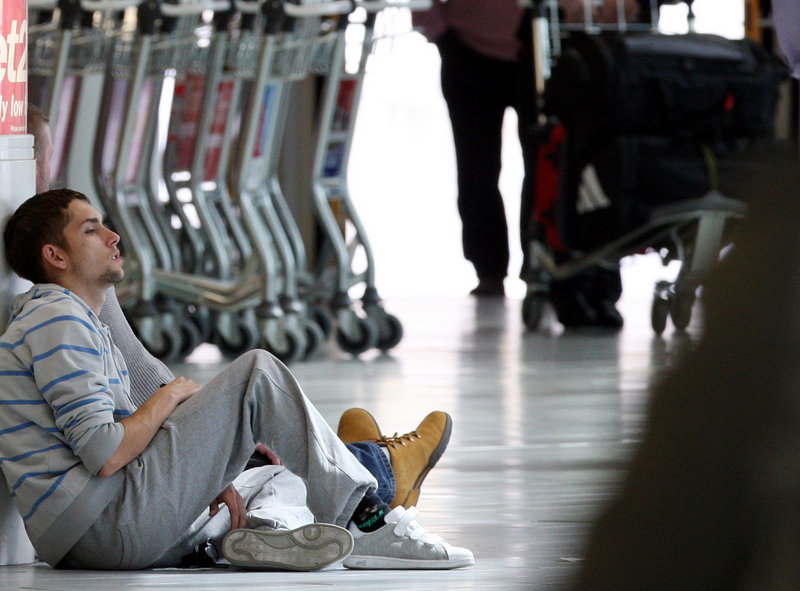LONDON – Aviation authorities introduced relaxed flight safety rules Monday to minimize more disruptions caused by a volcano eruption in Iceland, as three of Europe’s busiest airports reopened after a dense volcanic ash cloud dissipated.
Britain’s Civil Aviation Authority said it agreed with airlines, regulators and engine manufacturers on new rules that would let planes fly for a limited time through higher ash densities than currently allowed.
The rules, which take effect midday today, are subject to airlines getting a guarantee from their engine makers that their aircraft can tolerate the ash.
The body said that so far, British budget carrier Flybe was the only airline that satisfied those conditions, but it expected other airlines to follow soon and European authorities to introduce similar rules.
British air traffic control company NATS said the new rules meant that limits on British airspace could now be eased.
“There is mounting evidence that aircraft can fly safely through areas of medium density, provided some additional precautions are taken. This is now what has been agreed,” said the company’s CEO, Richard Deakin. “As a result of this change, there are no predicted restrictions on U.K. airspace in the immediate future.”
London’s Heathrow and Gatwick airports and Amsterdam’s Schiphol Airport — some of Europe’s biggest air travel hubs — reopened Monday after they closed because of volcanic ash worries. All three warned travelers it would take time for airlines to clear the backlog of delayed flights and advised travelers to contact their airlines before going to the airport.
All British, Scottish and Irish airspace will remain open at least until early today, but airspace over the North Sea was still restricted, affecting some helicopter operations.
Eurocontrol, the continent’s air traffic control agency, said 28,000 flights were expected Monday in Europe — about 1,000 less than normal — mainly because of the disruptions in Britain and the Netherlands.
Iceland’s Reykjavik airport was closed Monday. The Icelandic civil protection agency said the ash cloud was drifting to the north and was not expected to travel to Europe in the next two days.
Germany sent up two test flights Sunday to measure the ash cloud, but there was no word yet on the results of those tests. Still, Germany said Monday the latest ash cloud should not affect its airports.
“At this time, the concentration of ash above German air space is so low that there are no reductions in air traffic,” German Air Traffic Controllers said.
Ash can clog jet engines. The April 14 eruption at Iceland’s Eyjafjallajokul volcano forced most countries in northern Europe to shut their airspace between April 15 and April 20, grounding more than 100,000 flights and an estimated 10 million travelers worldwide.
Send questions/comments to the editors.



Success. Please wait for the page to reload. If the page does not reload within 5 seconds, please refresh the page.
Enter your email and password to access comments.
Hi, to comment on stories you must . This profile is in addition to your subscription and website login.
Already have a commenting profile? .
Invalid username/password.
Please check your email to confirm and complete your registration.
Only subscribers are eligible to post comments. Please subscribe or login first for digital access. Here’s why.
Use the form below to reset your password. When you've submitted your account email, we will send an email with a reset code.